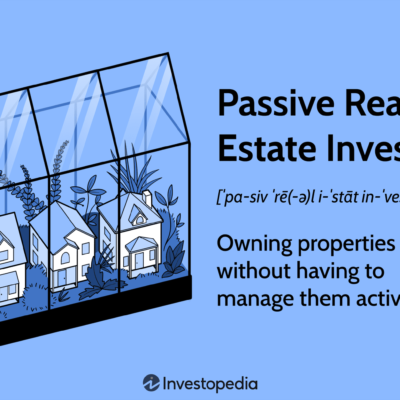Have you ever thought about owning a second home? According to a survey carried out by the ONS in 2018/2019, 3% of UK homeowners have second homes. In this Moneyfarm blog, we delve into the reason that people decide to buy second properties and examine the pros and cons of owning a second home in the UK.
| Is owning 2 properties worth it? | It depends on individual circumstances, but owning a second home can be a good investment |
| How can I finance the purchase of a second home in the UK? | Through personal savings, mortgage loans, or securing a personal loan. |
| What to consider before purchasing a second home in the UK? | Deposit percentage, interest rates, location, taxes, fees, and other associated expenses |
| What is the difference between a property and a pension? | A property is an asset class, while a pension is a tax wrapper |
What is a second home?
Strictly speaking, a second home is a property that a homeowner buys to live in, in addition to their main home. While the owner spends the vast majority of their time living in their primary residence, purchasing a second home often refers to buying a holiday home or a home to live in while working away.
Sometimes homeowners might buy a second home for other family members to inhabit rent-free.
The term “second home” is also used, albeit perhaps incorrectly, to describe a property which is bought for investment purposes, such as buying to let. Owning a second property in this context would be more accurately described as owning investment property, not a second home.
Why do people decide on owning a second home?
The ONS 2018/2019 survey stated that since the previous second home survey in 2008-2009, the number of homeowners taking on second homes rose from 572,00 to 772,000. The reason given for owning a second home were:
- 39% – Were holiday homes or weekend getaways.
- 35% – Were bought as long-term investments.
- 16% – Second-owned properties were previously main residences.
- 9% – Were bought as future retirement homes.
- 5% – Were bought for working away from main residences.
- 3% – Were bought for someone who was living away from home.
- 1% – Were bought as the result of a marital breakup.
- 11% – Other
So, what are the pros and cons?
The pros and cons of owning a second home in the UK
Let’s start with the advantages.
Pros of owning a second home in the UK
- You can be pretty confident that as a long-term investment, the value of your second home should rise and provide you with the return you were hoping for.
- You can use it as a holiday home or allow friends and family to use it for their holidays.
- Some local authorities offer to charge less council tax on second homes
Other benefits of owning a second home
In addition to the pros shown above, owning a second property has some other benefits. One potential aspect to add to the pros side of the pros and cons of owning a second home argument is that you can let it out in exchange for rental income.
Now let’s look at the potential downsides.
Cons of owning a second home in the UK
- More difficult to get mortgages in the current economic climat With the high cost of living, high-interest rates, and an incipient recession, mortgage lenders keep reviewing their affordability criteria.
- Mortgage interest rates are often higher on second homes than on primary residences because second home mortgages are considered to be
- May incur a 3% stamp duty
- Maintenance costs could be significant (especially if it is a rental property)
- Could be subject to capital gains tax when resold.
Other disadvantages of owning a second home
Another thing that needs to be considered among the disadvantages of the pros and cons of owning a second home in the UK debate is something known as liquidity. It relates to the ease and speed with which an asset (in this case, a second home) can be sold without negatively affecting its price.
The costs of owning a second property
There are certain implications of owning a second home here in the UK, including accepting the responsibility to keep the house and the grounds in good condition, which has both management and financial connotations. Here are some things you need to consider before owning a second home.
- Stamp Duty – you could be faced with a 3% stamp duty surcharge.
- 5% minimum deposit – raises to 25% if buy to let.
- You’ll require a special mortgage if it is a buy to let.
- Strict affordability criteria
- Mortgage interest rates are usually higher on second mortgages.
- You will have property maintenance costs.
- You could have to pay capital gains tax when you sell.
How many homes can I own in the UK at the same time?
There is no limit to how many properties you can own simultaneously here in the UK. According to CIA Landlords, you can own as many rental properties as your budget will support, either using your own money, a mortgage, or through some other sort of financing.
Is buying a second home a good investment?
The price of property in the UK has a promising record. According to the HM Land Registry, from 2005 to 2022, the average house price has risen from £150,000 to over £250,000. It dropped between January 2008 and February 2009 due to the financial crash of 2007-2009 but then resumed its recovery. Property value appreciation indicates that buying a property can be a good long-term investment, bearing in mind the problem of poor liquidity.
There is an ongoing debate between buying to let and investing in a pension. Where Pensions potentially wins is that once you reach 55, you get access to a 25% tax-free lump sum. Also, as regards pension growth, unlike the growth experienced when owning a second house, it doesn’t attract CGT (Capital Gains Tax).
You can learn more about this debate by reading Moneyfarm’s buy-to-let vs personal pension blog.
What’s the best option – buying or renting?
The knee-jerk answer to this question for many is that buying is the best option because it’s an investment, albeit a long-term one. They think that renting is just frittering money away. Yes, it’s true in the sense that with renting, you don’t own the asset. Therefore, you miss out on growth through inflation and market increases.
But buying a house, especially your first one, isn’t easy. You need to know how to save money for a house, as getting enough together for a deposit can be challenging. The experience and knowledge gained from owning a first home will help you understand the pros and cons of owning a second home in the UK better.
If you are debating on renting vs buying with limited funds, then renting might be your only option. It dispenses with the problem of struggling to save up for a deposit. Also, if you have managed to save some money, you can free it up for investing in something else, like a stocks and shares ISA, or general investment account, for example. In the future, these investments can be used to purchase a property.
How to buy a second home in the UK
The best way to buy a second home is to pay off the mortgage on your first home. Financial debt can easily weigh you down, and a mortgage is often the biggest debt anyone ever has. Having two mortgages could be double the trouble. If you want to Invest in a mortgage, paying off the first one before purchasing a second home will put less strain on the finances of 2nd homeowners.
Is owning two homes a good idea?
The costs of owning a second house are considerable. But, as a long-term investment, and if your personal wealth permits, it can be very beneficial.
But don’t lose sight of the problem of illiquidity. You might find that when you decide to sell a good investment, property prices have dropped, so given how long it can take to sell a property, it should not be viewed as a short-term investment.
FAQ
What are the benefits of owning a second home in the UK?
Purchasing a second home in the UK can provide several benefits. Some of the benefits of owning a second home include a source of rental income, a vacation place to spend time with family and friends, and a long-term investment that could appreciate in value over time.
What are the drawbacks of owning a second home in the UK?
Some of the disadvantages of owning a second home in the UK include the initial costs of purchasing the property, potentially higher mortgage rates, ongoing maintenance and upkeep expenses, stamp duty charges, fluctuation in rental income, and the fact that the property may not always be in use.
What are the tax implications of owning a second home in the UK?
The tax implications to consider before you purchase a second home in the UK include Stamp Duty Land Tax (SDLT) on the purchase price of the property, Capital Gains Tax (CGT) on any profits made from the sale of the property, and potential income tax on any rental income earned from the property.
*Capital at risk. Tax treatment depends on your individual circumstances and may be subject to change in the future.





